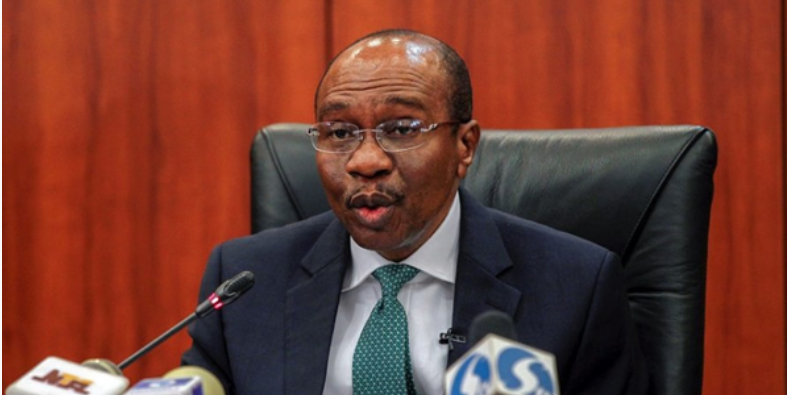The Nigerian minister of state for budget and national planning, Prince Clem Akanade Agba has called for the creation of a new regulatory body to oversee the regulation of crypto activities in the country.
The minister made this known at the recently-held Crypto Coinference put together by tech media organisation, Technext. According to him, a new body might be required for crypto regulation because the Nigerian law isn’t clear on which government agency, between the Central Bank of Nigeria (CBN) and the Securities and Exchange Commission (SEC) should control the space.
“Nigeria’s SEC are currently in discussions with CBN to enable better understanding and regulation of the crypto space. Nevertheless, it is also possible that our laws as they are today cannot explicitly stipulate who holds the power to regulate cryptocurrencies; maybe there is a need for an additional body to play this role,” Prince Clem Agba said.
Why CBN is currently playing the crypto regulatory role
Currently, the duty of bringing any kind of control over the Nigerian crypto space has been exercised by the central bank. While that has not augured well for many players including crypto exchanges and Peer-to-Peer (P2P) traders, the minister has an explanation for why the CBN is in charge.
According to him, the potential governmental stakeholders involved in financial regulation are the Executive, through the Ministry of Finance, Budget and National Planning, and the CBN, which is a fully autonomous body.
“The Ministry of Finance, Budget and National Planning and CBN have policy-making as part of their mandates. However, while the Ministry of Finance, Budget and National Planning
oversees fiscal policy, the CBN oversees monetary policy,” the minister said.


According to him, the challenge of who has the power to regulate the crypto space lies in the classification of cryptocurrencies.
“Are they a security as classified by the United States Securities and Exchange Commission (SEC), a property as classified in the United Kingdom (U.K), China and Singapore, a currency as classified by the US Treasury, or even a commodity as classified by the US’ Commodity
Prince Clems Agba
Futures Trading Commission (CFTC)?”
According to him, cryptocurrencies are under the jurisdiction of CBN as it is believed to
fall under the monetary policy of the country.
Safety of citizens trading crypto
While calling for fair regulation of the crypto space, the minister noted that the most important consideration should be the safety of citizens when participating in the industry.
“We all know of the good cryptocurrencies are capable of, the inclusivity and wealth creation they have already fostered. Thousands have made life-changing gains from trading and holding various cryptocurrencies, But hundreds of thousands have made losses that will be felt by the generation to come through scams in the crypto space,” he said.
Prince Agba, however, acknowledged that these scams are not peculiar to the crypto space alone. He noted that Nigerians have been known to fall for investment scams taking place in regulated spaces and as such, the problem is not exclusive to the crypto space.


He, however, argued that it is much easier for unsuspecting citizens to fall into these scams in an unregulated field that has a high educational barrier to entry.
Conceptually, cryptocurrencies, their types such as stablecoins, altcoins, security tokens, value tokens and their terminologies may be harder to explain to the average Nigerian than
Prince Clem Agba
stocks or regular trading.
The consideration for the minister is that if citizens already fall for these scams in a regulated sector where verifying the legitimacy of a company could be as straightforward as cross-checking their registration with SEC, many more could be victims in a space with no explicit verification method.
In conclusion
Nigeria has struggled with regulating, not just the crypto space, but the entire tech space. While there’s an urgent need for regulation to quickly catch up with innovation, in the Nigerian crypto space, the impulse of regulators seems to be to ban before understanding the space.
This is a phenomenon that the Founder of Computer Warehouse Group (CWG), Austin Okere described as ‘dumb regulation‘. According to the renowned financial expert, dumb regulation is when there’s not so much knowledge and regulation is done out of fear.
In February, the CBN commenced its clampdown on the crypto space when it ordered banks to discontinue the facilitation of transactions involving cryptocurrencies. That move forced many people to move to P2P trading, forced crypto exchanges to reconsider their business, while others like Patricia were forced to relocate out of the country.
Much later in the year, the apex bank would continue its onslaught when it mandated banks to shut down accounts of individuals and businesses suspected of dealing in crypto. This was crippling to the P2P space as the country’s P2P trading volume quickly saw a 43% decline the following week.
While Prince Clem tried to dispel the idea that regulation is “akin to a giant hammer slamming down on the activities going on in an industry,” the important question however is; with how much ‘regulation’ the CBN has brought into the crypto space, would people be wrong to compare it to a giant hammer slamming down on the space?





